858 start with P start with P
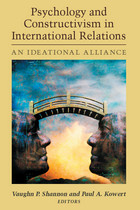
"The conversation between political psychology and constructivism is essential and long overdue. By exploring the interaction of individual cognition and social processes, this 'ideational alliance' more fully explains how ideas work all the way down to shape world politics."
---Theo Farrell, King's College London
"This is a worthwhile and engaging volume. Political psychology is gaining ground as an essential perspective to consider when analyzing international relations, and the book's focus on constructivism provides key insights into the relationship between identity, norms, and behavior---bedrock concepts in understanding the social underpinnings of global politics."
---Mira Sucharov, Carleton University
"An indispensable guide to understanding what distinguishes and what unites psychology and constructivism. A wonderful resource for political psychologists, constructivists, and their critics."
---Jonathan Mercer, University of Washington
Constructivist IR scholars study the ways in which international norms, culture, and identities---all intersubjective phenomena---inform foreign policy and affect the reaction to and outcomes of international events. Political psychologists similarly investigate divergent national self-conceptions as well as the individual cognitive and emotional propensities that shape ideology and policy. Given their mutual interest in human subjectivity and identity politics, a dialogue and synthesis between constructivism and political psychology is long overdue.
The contributors to this volume discuss both theoretical and empirical issues of complementarity and critique, with an emphasis on the potential for integrating the viewpoints within a progressive ideational paradigm. Moreover, they make a self-conscious effort to interrogate, rather than gloss over, their differences in the hope that such disagreements will prove particularly rich sources of analytical and empirical insight.
Jacket illustration © Ocean Photography/Veer

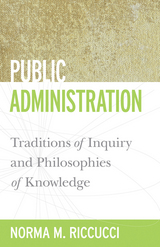
Is public administration an art or a science? This question of whether the field is driven by values or facts will never be definitively answered due to a lack of consensus among scholars. The resulting divide has produced many heated debates; however, in this pioneering volume, Norma Riccucci embraces the diversity of research methods rather than suggesting that there is one best way to conduct research in public administration.
Public Administration examines the intellectual origins and identity of the discipline of public administration, its diverse research traditions, and how public administration research is conducted today. The book’s intended purpose is to engage reasonable-minded public administration scholars and professionals in a dialogue on the importance of heterogeneity in epistemic traditions, and to deepen the field’s understanding and acceptance of its epistemological scope. This important book will provide a necessary overview of the discipline for graduate students and scholars.
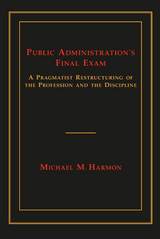
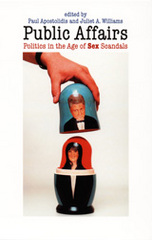
The essays in Public Affairs reflect on a number of sex scandals while emphasizing the Clinton/Lewinsky affair, certainly the most avidly followed and momentous sex scandal in American political history. Leading scholars situate contemporary public affairs in the context not only of earlier sex scandals in American politics (such as Thomas Jefferson’s and Sally Hemings’s affair), but also of more purely political scandals (including Teapot Dome and Watergate) and sex scandals centered around public figures other than politicians (such as the actor Hugh Grant and the minister Jimmy Swaggart). Some essays consider the Clinton affair in light of feminist and anti-racist politics, while others discuss the dynamics of scandals as major media events. By charting a critical path through the muck of scandal rather than around it, Public Affairs illuminates why sex scandals have become such a prominent feature of American public life.
Contributors. Paul Apostolidis, Jodi Dean, Joshua Gamson, Theodore J. Lowi, Joshua D. Rothman, George Shulman, Anna Marie Smith, Jeremy Varon, Juliet A. Williams
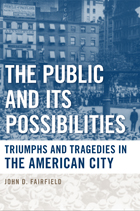
In his compelling reinterpretation of American history, The Public and Its Possibilities, John Fairfieldargues that our unrealized civic aspirations provide the essential counterpoint to an excessive focus on private interests. Inspired by the revolutionary generation, nineteenth-century Americans struggled to build an economy and a culture to complement their republican institutions. But over the course of the twentieth century, a corporate economy and consumer culture undercut civic values, conflating consumer and citizen.
Fairfield places the city at the center of American experience, describing how a resilient demand for an urban participatory democracy has bumped up against the fog of war, the allure of the marketplace, and persistent prejudices of race, class, and gender. In chronicling and synthesizing centuries of U.S. history—including the struggles of the antislavery, labor, women’s rights movements—Fairfield explores the ebb and flow of civic participation, activism, and democracy. He revisits what the public has done for civic activism, and the possibility of taking a greater role.
In this age where there has been a move towards greater participation in America's public life from its citizens, Fairfield’s book—written in an accessible, jargon-free style and addressed to general readers—is especially topical.
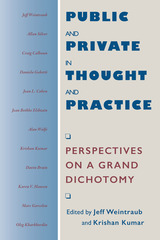
In contexts ranging from friendship, the family, and personal life to nationalism, democratic citizenship, the role of women in social and political life, and the contrasts between western and (post-)Communist societies, this book brings out the ways the various uses of the public/private distinction are simultaneously distinct and interconnected. Public and Private in Thought and Practice will be of interest to students and scholars in disciplines including politics, law, philosophy, history, sociology, and women's studies.
Contributors include Jeff Weintraub, Allan Silver, Craig Calhoun, Daniela Gobetti, Jean L. Cohen, Jean Bethke Elshtain, Alan Wolfe, Krishan Kumar, David Brain, Karen Hansen, Marc Garcelon, and Oleg Kharkhordin.

Budgeting has long been considered a rational process using neutral tools of financial management, but this outlook fails to consider the outside influences on leaders’ behavior. Steven G. Koven shows that political culture (moralistic, traditionalistic, individualistic) and ideological orientations (liberal vs. conservative) are at least as important as financial tools in shaping budgets.
Koven examines budget formation at the national, state, and local levels to demonstrate the strong influence of attitudes about how public money should be generated and spent. In addition to statistical data, the book includes recent case studies: the 1997 budget agreement; Governor George W. Bush’s use of the budget process to advance a conservative policy agenda in the state of Texas; and Mayor Marion Barry’s abuses of power in Washington, D.C.
Koven demonstrates that administrative principles are at best an incomplete guide for public officials and that budgeters must learn to interpret signals from the political environment.
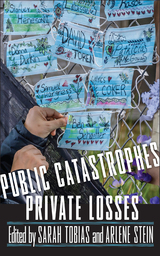

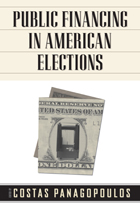
Reformers argue that public financing of campaigns will help rescue American democracy from the corruptive influence of money in elections. Public Financing in American Elections evaluates this claim and aims to remove much of the guesswork from the discussion about public finance.
Featuring some of the most senior scholars in political science and electoral studies, this book provides an up-to-date treatment of campaign finance research and thinking about public campaign financing reforms. Exploring proposals at the local, state, and federal levels, the contributors provide a comprehensive overview of public financing initiatives in the United States and discuss their impact. Focused analyses of several current public programs are also presented.
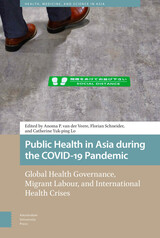
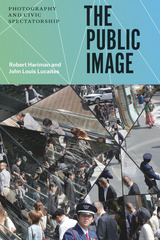
By confronting these conflicted reactions to photography, Robert Hariman and John Louis Lucaites make the case for a fundamental shift in understanding photography and public culture. In place of suspicions about the medium’s capacity for distraction, deception, and manipulation, they suggest how it can provide resources for democratic communication and thoughtful reflection about contemporary social problems.
The key to living well in the image world is to unlock photography from viewing habits that inhibit robust civic spectatorship. Through insightful interpretations of dozens of news images, The Public Image reveals how the artistry of the still image can inform, challenge, and guide reflection regarding endemic violence, environmental degradation, income inequity, and other chronic problems that will define the twenty-first century.
By shifting from conventional suspicions to a renewed encounter with the image, we are challenged to see more deeply on behalf of a richer life for all, and to acknowledge our obligations as spectators who are, crucially, also citizens.
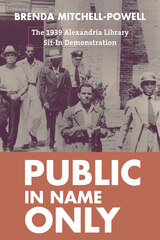
Library History Round Table Reads Selection, March 2024
Alexandria Historical Society Special Merit Award, 2023
When Alexandria, Virginia’s first public library was constructed just a few blocks from his home, Samuel Wilbert Tucker, a young, Black attorney, was appalled to learn that he could not use the library because of his race. Inspired by the legal successes of the NAACP in discrimination cases, he organized a grassroots protest to desegregate the library that his tax dollars supported.
Public in Name Only tells the important, but largely forgotten, story of Tucker and a group of Black citizens who agitated for change in the terms and conditions of their lives. Employing the combined strategies of direct-action public protest, nonviolent civil disobedience, and municipal litigation, Tucker’s initiative dovetailed with the national priorities and tactics of larger civil rights organizations. While Tucker’s campaign did not end with the desegregation of the Alexandria Library, but instead resulted in the creation of a “separate-and-unequal” Jim Crow Black branch, the sit-in demonstration represents a momentous early struggle for racial equity waged through civil rights activism.
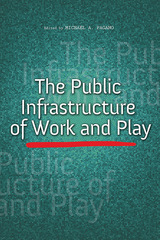
The latest volume in the Urban Agenda series looks at pressing infrastructure issues discussed at the 2017 UIC Urban Forum. Topics include: competing notions of the infrastructure ideal; what previous large infrastructure programs can teach the Trump Administration; how infrastructure influences city design; the architecture of the cities of tomorrow; who benefits from infrastructure improvements; and evaluations of projects like the Chicago Riverwalk and grassroots efforts to reclaim neighborhood parks from gangs.
Contributors: Philip Ashton, Beverly S. Bunch, Bill Burton, Charles Hoch, Sean Lally, and Sanjeev Vidyarthi
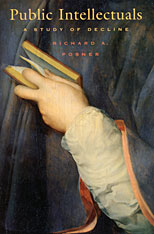
In this timely book, the first comprehensive study of the modern American public intellectual--that individual who speaks to the public on issues of political or ideological moment--Richard Posner charts the decline of a venerable institution that included worthies from Socrates to John Dewey.
With the rapid growth of the media in recent years, highly visible forums for discussion have multiplied, while greater academic specialization has yielded a growing number of narrowly trained scholars. Posner tracks these two trends to their inevitable intersection: a proliferation of modern academics commenting on topics outside their ken. The resulting scene--one of off-the-cuff pronouncements, erroneous predictions, and ignorant policy proposals--compares poorly with the performance of earlier public intellectuals, largely nonacademics whose erudition and breadth of knowledge were well suited to public discourse.
Leveling a balanced attack on liberal and conservative pundits alike, Posner describes the styles and genres, constraints and incentives, of the activity of public intellectuals. He identifies a market for this activity--one with recognizable patterns and conventions but an absence of quality controls. And he offers modest proposals for improving the performance of this market--and the quality of public discussion in America today.
This paperback edition contains a new preface and and a new epilogue.
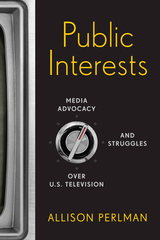
Nearly as soon as television began to enter American homes in the late 1940s, social activists recognized that it was a powerful tool for shaping the nation’s views. By targeting broadcast regulations and laws, both liberal and conservative activist groups have sought to influence what America sees on the small screen. Public Interests describes the impressive battles that these media activists fought and charts how they tried to change the face of American television.
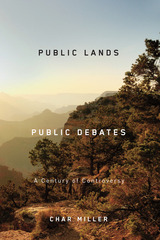
—Char Miller, from the introduction
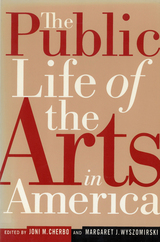
Art and entertainment constitute America’s second-largest export. Most Americans—96%, to be exact—are somehow involved in the arts, whether as audience participants, hobbyists, or via broadcast, recording, video, or the Internet. The contribution of the arts to the U.S. economy is stunning: the nonprofit arts industry alone contributes over 857 billion dollars per year, and America’s fine and performing arts enjoy world-class status.
Despite its size, quality, and economic impact, the arts community is not articulate about how they serve public interests, and few citizens have an appreciation of the myriad of public policies that influence American arts and culture. The contributors to this volume argue that U.S. policy can—and should—support the arts and that the arts, in turn serve a broad rather than an elite public. Indeed, increased support for the arts and culture equals good economic and trade policy; it also contributes to the quality of life and community, and helps sustain the creativity of American artists and organizations.
By encouraging policy-makers to systematically start investigating the crucial role and importance of all of the arts in the United States, The Arts and Public Purpose moves the field forward with fresh ideas, new concepts, and important new data.
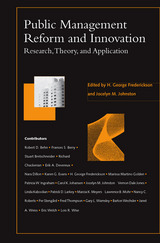
Leading scholars present the most complete, as well as the most advanced, treatment of public management reform and innovation available
The subject of reform in the public sector is not new; indeed, its latest rubric, reinventing government, has become good politics. Still, as the contributors ask in this volume, is good politics necessarily good government?Given the growing desire to reinvent government, there are hard questions to be asked: Is the private sector market model suitable and effective when applied to reforming public and governmental organizations? What are the major political forces affecting reform efforts in public management? How is public management reform accomplished in a constitutional democratic government? How do the values of responsiveness, professionalism, and managerial excellence shape current public management reforms? In this volume, editors H. George Frederickson and Jocelyn M. Johnston bring together scholars with a shared interest in empirical research to confront head-on the toughest questions public managers face in their efforts to meet the demands of reform and innovation.
Throughout the book, the authors consider the bureaucratic resistance that results when downsizing and reinvention are undertaken simultaneously, the dilemma public managers face when elected executives set a reform agenda that runs counter to the law, and the mistaken belief that improved management can remedy flawed policy.
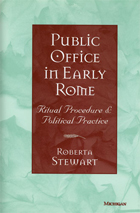
---Bryn Mawr Classical Review

Thoroughly revised edition of an essential text, incorporating a wealth of new material on American foreign policy since 9/11.
The second edition of this concise masterwork includes vast amounts of new material on American foreign policy in the post-9/11 era, including the war in Iraq. Holsti explores the poorly understood role of public opinion in international affairs, looking at Americans' capacity to make informed judgments about issues far removed from their personal experience.
"Impressively comprehensive and current: an excellent revision of a book by the #1 authority on the topic. This new edition will remain at the forefront for consultation and textbook adoption on the topic for years to come."
-Bruce Russett, Yale University
"I thought the first edition was the best single treatment of the subject-so, apparently, did the student who 'borrowed' my copy-and this is a worthy successor. The new edition almost flawlessly accomplishes the goal Holsti sets for himself: an update of his landmark book in light of emerging research and the dramatically changed state of the world that confronts U.S. foreign policy."
-Randy Siverson, University of California, Davis
"For those who are curious about the impact of 9/11 on American public opinion, for serious students of the relationship between foreign policy and public opinion, for anyone who wants to understand contemporary American opinion about the United States' place in the world, and for citizens tired of conventional wisdom about a difficult and important subject, Holsti's study is not only interesting and topical, it is essential."
-Maxine Isaacs, Kennedy School of Government, Harvard University
"In an age of almost weekly polling on foreign policy, Holsti's insights are indispensable. He delivers double tour de force in this new edition, providing his own current and historical research along with a comprehensive synthesis of the existing literature. His analysis of the relationships between public opinion and foreign policy since 9/11 will prove particularly valuable for students and scholars alike."
-Richard Eichenberg, Tufts University
"Holsti combines a vast knowledge of political history and a mastery of the relevant scholarship with up-to-date empirical data to address the question of what role the general public can play in shaping foreign policy. This revised edition is a remarkable achievement."
-Shoon Murray, School of International Service, American University

Despite widespread agreement that the District of Columbia's political system has collapsed, there is a serious lack of thoughtful proposals addressing the political future of the nation's capital. In this book, Edward M. Meyers examines the opinions of average Americans about Washington, D.C., in order to understand how many Americans are likely to approach the question of what reforms are needed.
Meyers first explores the political, economic, and social conditions of the District, providing an informed context for understanding and evaluating its political options. Presenting the results of in-depth qualitative research with focus groups held across the country, Meyers reveals that regardless of the participants' knowledge about the District, their beliefs in six basic concepts or schemata—such as respect for democratic rights, attitudes about race, and aversion to an intrusive federal government—molded their opinions about various options for District self-governance. The book concludes with insights into the District by local and national political leaders, including OMB Director Alice Rivlin, Jesse Jackson, Representatives Eleanor Holmes Norton, Thomas Davis, and James Walsh, and Marion Barry.
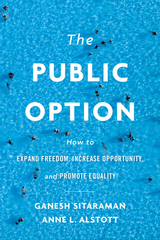
A solution to inequalities wherever we look—in health care, secure retirement, education—is as close as the public library. Or the post office, community pool, or local elementary school. Public options—reasonably priced government-provided services that coexist with private options—are all around us, ready to increase opportunity, expand freedom, and reawaken civic engagement if we will only let them.
Whenever you go to your local public library, send mail via the post office, or visit Yosemite, you are taking advantage of a longstanding American tradition: the public option. Some of the most useful and beloved institutions in American life are public options—yet they are seldom celebrated as such. These government-supported opportunities coexist peaceably alongside private options, ensuring equal access and expanding opportunity for all.
Ganesh Sitaraman and Anne Alstott challenge decades of received wisdom about the proper role of government and consider the vast improvements that could come from the expansion of public options. Far from illustrating the impossibility of effective government services, as their critics claim, public options hold the potential to transform American civic life, offering a wealth of solutions to seemingly intractable problems, from housing shortages to the escalating cost of health care.
Imagine a low-cost, high-quality public option for child care. Or an extension of the excellent Thrift Savings Plan for federal employees to all Americans. Or every person having access to an account at the Federal Reserve Bank, with no fees and no minimums. From broadband internet to higher education, The Public Option reveals smart new ways to meet pressing public needs while spurring healthy competition. More effective than vouchers or tax credits, public options could offer us all fairer choices and greater security.
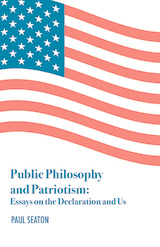
Paul Seaton’s Public Philosophy and Patriotism: The Declaration and Us is a very countercultural book. It advances the provocative thesis that not only is the Declaration worthy of our study today, but its principles and way of thinking about politics can and should be used to judge us and our politics today. That’s countercultural. While conservatives still have a warm place for the document in their hearts, one rarely hears them apply it to today’s debates. Progressives tend to take two contradictory tacks toward the founding document: on one hand, it’s the negligible product of hypocritical white males, on another, it limns the “ideals” and “values” of the American project that History is charged with fulfilling. Neither of these views takes the document intellectually seriously. Jefferson, however, articulated a different view when he called the Declaration “an expression of the American mind” at the time of the Revolution. Here was a self-conscious, self-confident American mind, ready to take on the world. Taking his cue from Jefferson, Seaton takes the Declaration seriously. He takes it seriously as the expression of a mind that confidently judged despotic designs, but also grasped the principles of free government and free and reasonable politics and looked forward to a country embodying them. Seaton argues that both these dimensions of Declaration political thought are applicable today.
He does so in an interesting way. For a number of years, he penned a Fourth of July essay on “the Declaration and Us” for the Law & Liberty website. On that occasion, he provided an exposition of some theme of the Declaration and applied it to a contemporary debate or issue. Over the years, they added up to a rather full exposition of the document, as well as an ongoing commentary on American political life. With this collection, the essentials of the Declaration’s view of politics are laid bare, and significant threats to freedom-loving Americans are identified. This is the bold claim and aim of this unique book.
At the beginning and end of the collection, Seaton makes a point of dating the completion of the manuscript on April 18th. When the curious reader looks up the date, he finds that it is the date when Paul Revere undertook his famous ride. In this way, the author indicates his judgment of the dire circumstances in which we live today and the patriotic models to which he hearkens. In the form of an explication de texte, this collection is a call to arms against today’s enemies of ordered liberty.
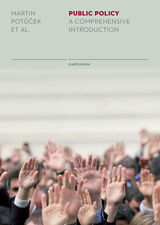
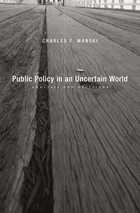
Public policy advocates routinely assert that “research has shown” a particular policy to be desirable. But how reliable is the analysis in the research they invoke? And how does that analysis affect the way policy is made, on issues ranging from vaccination to minimum wage to FDA drug approval? Charles Manski argues here that current policy is based on untrustworthy analysis. By failing to account for uncertainty in an unpredictable world, policy analysis misleads policy makers with expressions of certitude. Public Policy in an Uncertain World critiques the status quo and offers an innovation to improve how policy research is conducted and how policy makers use research.
Consumers of policy analysis, whether civil servants, journalists, or concerned citizens, need to understand research methodology well enough to properly assess reported findings. In the current model, policy researchers base their predictions on strong assumptions. But as Manski demonstrates, strong assumptions lead to less credible predictions than weaker ones. His alternative approach takes account of uncertainty and thereby moves policy analysis away from incredible certitude and toward honest portrayal of partial knowledge. Manski describes analysis of research on such topics as the effect of the death penalty on homicide, of unemployment insurance on job-seeking, and of preschooling on high school graduation. And he uses other real-world scenarios to illustrate the course he recommends, in which policy makers form reasonable decisions based on partial knowledge of outcomes, and journalists evaluate research claims more closely, with a skeptical eye toward expressions of certitude.
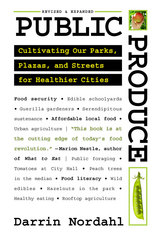
The idea that public land could be used creatively to grow fresh food for local citizens was beginning to gain traction when Public Produce was first published in 2009, but there were few concrete examples of action. Today, things are different: fruits and vegetables are thriving in parks, plazas, along our streets, and around our civic buildings.
This revised edition of Public Produce profiles the many communities and community officials that are rethinking the role of public space in cities, and shows how places as diverse as parking lots and playgrounds can sustain health and happiness through fresh produce. But these efforts produce more than food. Revitalizing urban areas, connecting residents with their neighborhoods, and promoting healthier lifestyles are just a few of the community goods we harvest from growing fruits and vegetables in our public gathering spots.
Taking readers from inspiration to implementation, Public Produce is chock full of tantalizing images and hearty lessons for bringing agriculture back into our cities.

Thomas J Billard and Silvio Waisbord curate essays from a wide range of specialties within the study of communication. Aimed at scholars and students alike, the contributors use approaches from critical meditations to case studies to how-to guides as they explore the possibilities of seeing shared knowledge not as a gift to be granted but as an imperative urging readers to address the problems of the world. Throughout the volume, the works show that a pivot to ideas of scholarship as public service is already underway in corners of communication studies across the country.
Visionary and provocative, Public Scholarship in Communication Studies proposes a needed reconsideration of knowledge and a roadmap to its integration with community.
Contributors: Elaine Almeida, Becca Beets, Thomas J Billard, Danielle K. Brown, Aymar Jean Christian, Stacey L. Connaughton, Paula Gardner, Larry Gross, Amy Jordan, Daniel Kreiss, Rachel Kuo, Susan Mancino, Shannon C. McGregor, Philip M. Napoli, Todd P. Newman, Srividya Ramasubramanian, Chad Raphael, Sue Robinson, Silvio Waisbord, Yidong Wang, and Holley Wilkin
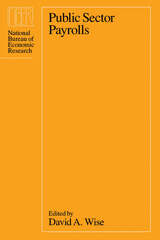
The volume, developed from a 1984 National Bureau of Economic Research conference, focuses on various labor issues in military and other governmental employment. Several contributors discuss compensation in the armed forces and its relationship to that in the private sector, as well as the interaction between the military and the private sector in the employment of youth. This latter is of particular interest because studies of youth employment have generally ignored the important influence of military hiring practices on labor market conditions. In other contributions, the response of wages and employment in the public sector to economic conditions is analyzed, and a detailed study of government pension plans is presented. Also included is a theoretical and empirical analysis of comparable worth in the public sector from the viewpoint of analytical labor economics. The volume concludes with a look at public school teachers' salaries in the context of current debates over improving the quality of American education.
A valuable resource to policymakers, Public Sector Payrolls will be an important addition to research in the field of labor economics.
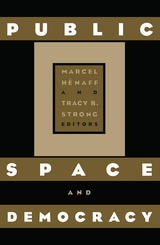

The achievement of Singapore’s national public housing program is impressive by any standard. Within a year of its first election victory in 1959, the People's Action Party began to deliver on its promises. By the 1980s, 85% of the population had been rehoused in modern flats. Now, decades later, the provision of public housing shapes Singapore's environment. The standard accounts of this remarkable transformation leave many questions unanswered, from the historical to urgent matters of current policy. Why was housing such a priority in the 1960s? How did the provision of social welfare via public housing shape Singapore's industrialization and development over the last 50 years? Looking forward, can the HDB continue to be both a source of affordable housing for young families and a mechanism for retirement savings? What will happen when 99-year leases expire?
Public Subsidy, Private Accumulation is a culmination of Chua Beng Huat's study of Singapore's public housing system, its dynamics, and the ways it functions in Singapore's politics. The book will be of interest to citizens and to scholars of the political economy of Asian development, social welfare provision, and Singapore.

Governments and nonprofits exist to create public value. Yet what does that mean in theory and practice?
This new volume brings together key experts in the field to offer unique, wide-ranging answers. From the United States, Europe, and Australia, the contributors focus on the creation, meaning, measurement, and assessment of public value in a world where government, nonprofit organizations, business, and citizens all have roles in the public sphere. In so doing, they demonstrate the intimate link between ideas of public value and public values and the ways scholars theorize and measure them. They also add to ongoing debates over what public value might mean, the nature of the most important public values, and how we can practically apply these values. The collection concludes with an extensive research and practice agenda conceived to further the field and mainstream its ideas.
Aimed at scholars, students, and stakeholders ranging from business and government to nonprofits and activist groups, Public Value and Public Administration is an essential blueprint for those interested in creating public value to advance the common good.

Economic individualism and market-based values dominate today's policymaking and public management circles—often at the expense of the common good. In his new book, Barry Bozeman demonstrates the continuing need for public interest theory in government. Public Values and Public Interest offers a direct theoretical challenge to the "utility of economic individualism," the prevailing political theory in the western world.
The book's arguments are steeped in a practical and practicable theory that advances public interest as a viable and important measure in any analysis of policy or public administration. According to Bozeman, public interest theory offers a dynamic and flexible approach that easily adapts to changing situations and balances today's market-driven attitudes with the concepts of common good advocated by Aristotle, Saint Thomas Aquinas, John Locke, and John Dewey.
In constructing the case for adopting a new governmental paradigm based on what he terms "managing publicness," Bozeman demonstrates why economic indices alone fail to adequately value social choice in many cases. He explores the implications of privatization of a wide array of governmental services—among them Social Security, defense, prisons, and water supplies. Bozeman constructs analyses from both perspectives in an extended study of genetically modified crops to compare the policy outcomes using different core values and questions the public value of engaging in the practice solely for the sake of cheaper food.
Thoughtful, challenging, and timely, Public Values and Public Interest shows how the quest for fairness can once again play a full part in public policy debates and public administration.
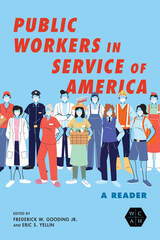
From white-collar executives to mail carriers, public workers meet the needs of the entire nation. Frederick W. Gooding Jr. and Eric S. Yellin edit a collection of new research on this understudied workforce. Part One begins in the late nineteenth- and early twentieth century to explore how questions of race, class, and gender shaped public workers, their workplaces, and their place in American democracy. In Part Two, essayists examine race and gender discrimination while revealing the subtle contemporary forms of marginalization that keep Black men and Black and white women underpaid and overlooked for promotion. The historic labor actions detailed in Part Three illuminate how city employees organized not only for better pay and working conditions but to seek recognition from city officials, the public, and the national labor movement. Part Four focuses on nurses and teachers to address the thorny question of whether certain groups deserve premium pay for their irreplaceable work and sacrifices or if serving the greater good is a reward unto itself.
Contributors: Eileen Boris, Cathleen D. Cahill, Frederick W. Gooding Jr., William P. Jones, Francis Ryan, Jon Shelton, Joseph E. Slater, Katherine Turk, Eric S. Yellin, and Amy Zanoni

Global health problems require global solutions, and public–private partnerships are increasingly called upon to provide these solutions. Such partnerships involve private corporations in collaboration with governments, international agencies, and nongovernmental organizations. They can be very productive, but they also bring their own problems. This volume examines the organizational and ethical challenges of partnerships and suggests ways to address them. How do organizations with different values, interests, and world-views come together to resolve critical public health issues? How are shared objectives and shared values created within a partnership? How are relationships of trust fostered and sustained in the face of the inevitable conflicts, uncertainties, and risks of partnership?
This book focuses on public–private partnerships that seek to expand the use of specific products to improve health conditions in poor countries. The volume includes case studies of partnerships involving specific diseases such as trachoma and river blindness, international organizations such as the World Health Organization, multinational pharmaceutical companies, and products such as medicines and vaccines. Individual chapters draw lessons from successful partnerships as well as troubled ones in order to help guide efforts to reduce global health disparities.
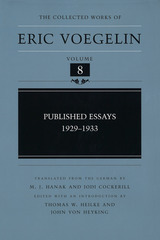
This volume of The Collected Works contains essays published by Eric Voegelin between 1929 and 1933, the period between the publication of his first book, On the Form of the American Mind, and Hitler's rise to power, as well as Voegelin's two books analyzing the explosive race issues posed by National Socialism. The essays herein reflect the intellectual and political tumult of the period and their author's maturing grasp of political reality as he moved away from positivism and Kelsen's "Pure Theory of Law" toward a more refined and open philosophical stance. The heart of this shift is signaled by his emphasis on philosophical anthropology and on the decisive importance of the moral substance basic to political communities.
The topics of the essays are grouped around major themes in sociological theory, political science, and the theory of law. They illuminate the theoretical and practical impact of Voegelin's experiences in America as he increasingly engages European theories of state, especially the social theories of leading French and German scholars. In content, these essays include such pragmatic concerns as American theories of property, economic transactions, due process of law, and Austrian constitutional reforms.
Voegelin also explores the technically complex speculative matters surrounding sovereignty and law, Max Weber's science, and the spiritual form of Europe. He analyzes Kant's understanding of moral duty and the meaning of solidarity as the substance of democratic society. Through these discourses, readers can see how the theme of divine transcendence increasingly finds expression during this crucial early stage of Voegelin's scholarly life. Thus, these studies mark the early path Voegelin took in making his arduous journey from legal scholar to philosophical political scientist. They display his increasingly resolute attention-- against challenges both existential and urgently political--to a growing insight into what it means to be fully human as he struggles toward an eventual philosophy of politics and history sufficient to amplify that noble insight.
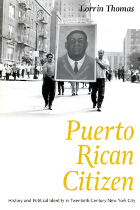
Building its incisive narrative from a wide range of archival sources, interviews, and first-person accounts of Puerto Rican life in New York, this book illuminates the rich history of a group that is still largely invisible to many scholars. At the center of Puerto Rican Citizen are Puerto Ricans’ own formulations about political identity, the responses of activists and ordinary migrants to the failed promises of American citizenship, and their expectations of how the American state should address those failures. Complicating our understanding of the discontents of modern liberalism, of race relations beyond black and white, and of the diverse conceptions of rights and identity in American life, Thomas’s book transforms the way we understand this community’s integral role in shaping our sense of citizenship in twentieth-century America.
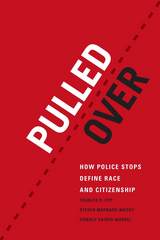
Pulled Over deftly traces the strange history of the investigatory police stop, from its discredited beginning as “aggressive patrolling” to its current status as accepted institutional practice. Drawing on the richest study of police stops to date, the authors show that who is stopped and how they are treated convey powerful messages about citizenship and racial disparity in the United States. For African Americans, for instance, the experience of investigatory stops erodes the perceived legitimacy of police stops and of the police generally, leading to decreased trust in the police and less willingness to solicit police assistance or to self-censor in terms of clothing or where they drive. This holds true even when police are courteous and respectful throughout the encounters and follow seemingly colorblind institutional protocols. With a growing push in recent years to use local police in immigration efforts, Hispanics stand poised to share African Americans’ long experience of investigative stops.

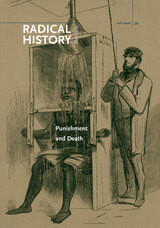
The issue’s contributors—comprising both academics and activists—examine the practices of punishment and death imposed upon citizens, particularly through penal systems. One contributor exposes how the indignation and outrage many Americans expressed toward the military torture at Abu Ghraib do not extend to similar instances of torture (beatings, “shower-baths,” sexual abuse, etc.) against inmates of color within the U.S. prison system. Another contributor reflects on the unexpected but effective alliance between antiprison activists and the environmental justice movement in California, which worked to stop the massive prison-building boom of the late twentieth and early twenty-first centuries. Bringing a longer sweep of Western colonialism into view, another essay reveals the racial prejudices within disciplinary processes of Puerto Rico that lingered even after the island’s emancipation from the Spanish American empire, leading to unequal distribution of punishment on both colonial and domestic subject populations.
Contributors. Ethan Blue, Rose Braz, Helena Cobban, Craig Gilmore, Alan Eladio Gómez, R. J. Lambrose, Heather Jane McCarty, Dylan Rodríguez, Kelvin Santiago-Valles, Carolyn Strange, Patrick Timmons
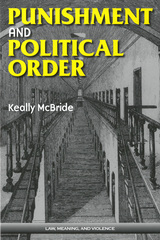
Most of us think of punishment as an ugly display of power. But punishment also tells us something about the ideals and aspirations of a people and their government. How a state punishes reveals whether or not it is confident in its own legitimacy and sovereignty. Punishment and Political Order examines the questions raised by the state’s exercise of punitive power—from what it is about human psychology that desires sanction and order to how the state can administer pain while calling for justice. Keally McBride's book demonstrates punishment's place at the core of political administration and the stated ideals of the polity.
"From start to finish this is a terrific, engaging book. McBride offers a fascinating perspective on punishment, calling attention to its utility in understanding political regimes and their ideals. She succeeds in reminding us of the centrality of punishment in political theory and, at the same time, in providing a framework for understanding contemporary events. I know of no other book that does as much to make the subject of punishment so compelling."
—Austin Sarat, Amherst College
"Punishment and Political Order will be welcome reading for anyone interested in understanding law in society, punishment and political spectacle, or governing through crime control. This is a clear, accessible, and persuasive examination of punishment—as rhetoric and reality. Arguing that punishment is a complex product of the social contract, this book demonstrates the ways in which understanding the symbolic power and violence of the law provides analytical tools for examining the ideological function of prison labor today, as well as the crosscutting and contingent connections between language and identity, legitimation and violence, sovereignty and agency more generally."
—Bill Lyons, Director, Center for Conflict Management, University of Akron
"Philosophical explorations of punishment have often stopped with a theory of responsibility. McBride's book moves well beyond this. It shows that the problem of punishment is a central issue for any coherent theory of the state, and thus that punishment is at the heart of political theory. This is a stunning achievement."
—Malcolm M. Feeley, University of California at Berkeley
Keally McBride is Assistant Professor of Politics at the University of San Francisco.
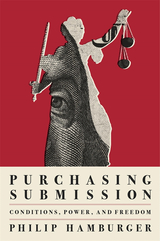
From a leading constitutional scholar, an important study of a powerful mode of government control: the offer of money and other privileges to secure submission to unconstitutional power.
The federal government increasingly regulates by using money and other benefits to induce private parties and states to submit to its conditions. It thereby enjoys a formidable power, which sidesteps a wide range of constitutional and political limits.
Conditions are conventionally understood as a somewhat technical problem of “unconstitutional conditions”—those that threaten constitutional rights—but at stake is something much broader and more interesting. With a growing ability to offer vast sums of money and invaluable privileges such as licenses and reduced sentences, the federal government increasingly regulates by placing conditions on its generosity. In this way, it departs not only from the Constitution’s rights but also from its avenues of binding power, thereby securing submission to conditions that regulate, that defeat state laws, that commandeer and reconfigure state governments, that extort, and even that turn private and state institutions into regulatory agents.
The problem is expansive, including almost the full range of governance. Conditions need to be recognized as a new mode of power—an irregular pathway—by which government induces Americans to submit to a wide range of unconstitutional arrangements.
Purchasing Submission is the first book to recognize this problem. It explores the danger in depth and suggests how it can be redressed with familiar and practicable legal tools.
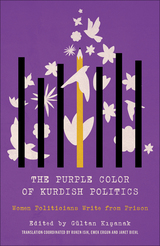
Prison writings from twenty-two Kurdish women who were elected to office in Turkey and then imprisoned by the state on political grounds.
Gültan Kışanak, a Kurdish journalist and former MP, was elected co-mayor of Diyarbakır in 2014. Two years later, the Turkish state arrested and imprisoned her. Her story is remarkable, but not unique. While behind bars, she wrote about her own experiences and collected similar accounts from other Kurdish women, all co-chairs, co-mayors, and MPs in Turkey; all incarcerated on political grounds.
The Purple Colour of Kurdish Politics is a one-of-a-kind collection of prison writings from twenty-two Kurdish women politicians. Here they reflect on their personal and collective struggles against patriarchy and anti-Kurdish repression in Turkey; on the radical feminist principles and practices through which they transformed the political structures and state offices in which they operated. They discuss what worked and what didn’t, and the ways in which Turkey’s anti-capitalist and socialist movements closely informed their political stances and practices.
Demonstrating Kurdish women’s ceaseless political determination and refusal to be silenced – even when behind bars – the book ultimately hopes to inspire women living under even the most unjust conditions to engage in collective resistance.
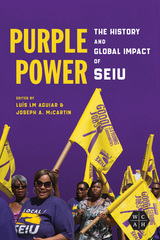
Luís LM Aguiar and Joseph A. McCartin edit essays on one of contemporary labor’s bedrock organizations. The contributors explore key episodes, themes, and features in the union’s recent history and evaluate SEIU as a union with global aspirations and impact. The first section traces the SEIU’s growth in the last and current centuries. The second section offers in-depth studies of key campaigns in the United States, including the Justice for Janitors and Fight for $15 movements. The third section focuses on the SEIU’s work representing low-wage workers in Canada, Australia, Europe, and Brazil. An interview with Justice for Janitors architect Stephen Lerner rounds out the volume.
Contributors: Luís LM Aguiar, Adrienne E. Eaton, Janice Fine, Euan Gibb, Laurence Hamel-Roy, Tashlin Lakhani, Joseph A. McCartin, Yanick Noiseux, Benjamin L. Peterson, Allison Porter, Alyssa May Kuchinski, Maite Tapia, Veronica Terriquez, and Kyoung-Hee Yu
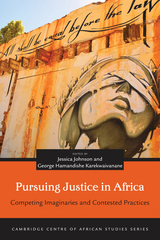
Pursuing Justice in Africa focuses on the many actors pursuing many visions of justice across the African continent—their aspirations, divergent practices, and articulations of international and vernacular idioms of justice. The essays selected by editors Jessica Johnson and George Hamandishe Karekwaivanane engage with topics at the cutting edge of contemporary scholarship across a wide range of disciplines. These include activism, land tenure, international legal institutions, and postconflict reconciliation.
Building on recent work in sociolegal studies that foregrounds justice over and above concepts such as human rights and legal pluralism, the contributors grapple with alternative approaches to the concept of justice and its relationships with law, morality, and rights. While the chapters are grounded in local experiences, they also attend to the ways in which national and international actors and processes influence, for better or worse, local experiences and understandings of justice. The result is a timely and original addition to scholarship on a topic of major scholarly and pragmatic interest.
Contributors:
Felicitas Becker, Jonathon L. Earle, Patrick Hoenig, Stacey Hynd, Fred Nyongesa Ikanda, Ngeyi Ruth Kanyongolo, Anna Macdonald, Bernadette Malunga, Alan Msosa, Benson A. Mulemi, Holly Porter, Duncan Scott, Olaf Zenker.

During combat, soldiers make life-and-death choices dozens of times a day. These individual decisions accumulate to determine the outcome of wars. This work examines the theory and practice of military ethics in counterinsurgency operations. Marcus Schulzke surveys the ethical traditions that militaries borrow from; compares ethics in practice in the US Army, British Army and Royal Marines Commandos, and Israel Defense Forces; and draws conclusions that may help militaries refine their approaches in future conflicts. The work is based on interviews with veterans and military personnel responsible for ethics training, review of training materials and other official publications, published accounts from combat veterans, and observation of US Army focus groups with active-duty soldiers. Schulzke makes a convincing argument that though military ethics cannot guarantee flawless conduct, incremental improvements can be made to reduce war’s destructiveness while improving the success of counterinsurgency operations.
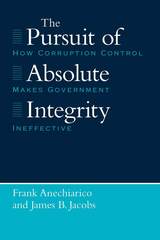
"Anechiarico and Jacobs . . . have pushed aside the claims and posturing by officials and reformers and revealed a critical need to reevaluate just what we have and are doing to public servants, and to the public, in the name of anti-corruption."—Citylaw
"A timely and very useful addition to the new debate over corruption and reform."—Michael Johnston, American Political Science Review
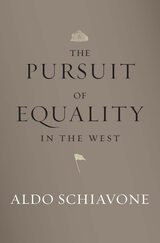
One of the world’s foremost historians of Western political and legal thought proposes a bold new model for thinking about equality at a time when its absence threatens democracies everywhere.
How much equality does democracy need to survive? Political thinkers have wrestled with that question for millennia. Aristotle argued that some are born to command and others to obey. Antiphon believed that men, at least, were born equal. Later the Romans upended the debate by asking whether citizens were equals not in ruling but in standing before the law. Aldo Schiavone guides us through these and other historical thickets, from the first democracy to the present day, seeking solutions to the enduring tension between democracy and inequality.
Turning from Antiquity to the modern world, Schiavone shows how the American and the French revolutions attempted to settle old debates, introducing a new way of thinking about equality. Both the French revolutionaries and the American colonists sought democracy and equality together, but the European tradition (British Labour, Russian and Eastern European Marxists, and Northern European social democrats) saw formal equality—equality before the law—as a means of obtaining economic equality. The American model, in contrast, adopted formal equality while setting aside the goal of economic equality.
The Pursuit of Equality in the West argues that the United States and European models were compatible with industrial-age democracy, but neither suffices in the face of today’s technological revolution. Opposing both atomization and the obsolete myths of the collective, Schiavone thinks equality anew, proposing a model founded on neither individualism nor the erasure of the individual but rather on the universality of the impersonal human, which coexists with the sea of differences that makes each of us unique.
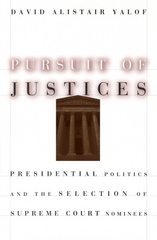
Yalof draws on the papers of seven modern presidents, from Truman to Reagan, and firsthand interviews with key figures, such as Ramsey Clark, Edwin Meese, and President Gerald Ford. He documents and analyzes the selection criteria these presidents used, the pool of candidates from which they chose, their strategies, and the political pressures affecting their decisions, both successes and failures. Yalof also disputes much conventional wisdom about the selection process, including the widely held view that presidents choose nominees primarily to influence future decisions of the high court. In a substantial epilogue, Yalof offers insightful observations about the selections of Presidents George Bush and Bill Clinton.
By focusing on a neglected area of presidential politics, Yalof offers a fascinating and unprecedented glimpse into the intricate world of executive branch decisionmaking and the Supreme Court appointment process as a whole.
Winner of the 2000 Richard E. Neustadt Award for Best Book on the American Presidency
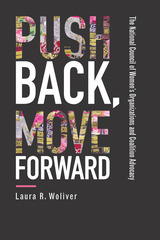
The coalition known as the National Council of Women’s Organizations no longer exists today, but the history and the lessons learned from the NCWO’s activism remain as important as ever—perhaps even more so in this age of Trump. Laura Woliver spent fifteen years doing fieldwork and conducting research and interviews to understand how the NCWO coalition group functioned. The result is her impressive study, Push Back, Move Forward.
Woliver explores the foundational work of the NCWO and member groups to promote women’s economic security, citizen status, and political rights. She investigates women’s access to previously “male only” organizations, such as private clubs; the increase in voter participation generated by measures such as early voting; advocacy campaigns for such benefit programs as Social Security and the Affordable Care Act; and global human and women’s rights activism. In addition, she examines the accomplishments of women of color, both alongside and within the NCWO, who orient their politics toward achieving justice and attaining rights.
Push Back, Move Forward artfully documents this important group’s activities while also gleaning larger lessons about coalition organizations.

Certain to appeal to anyone interested in American political science and history, Pushback closes with a detailed examination of the unequivocally countermajoritarian Supreme Court ruling of our lifetimes, Dobbs v. Jackson Women’s Health Organization, which overturned Roe. For the first time in 50 years, conditions are ripe for a party to win votes by campaigning against the will of the Court. Upcoming elections will tell if the Republicans overplayed their hand, or if Democrats will play theirs as skillfully as did the GOP after Roe.
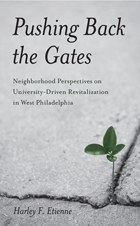
As college and university administrators expand and develop their urban campuses, they have also become developers—and primary drivers—of neighborhood change. But how do institutions contend with urban real estate needs, revitalization opportunities, and community outreach? And how do the residents benefit? Pushing Back the Gates provides a lively discussion of neighborhood-level perspectives of the dynamic changes brought about by institutions' urban planning efforts.
Harley Etienne outlines the rationale for university-driven development and neighborhood revitalization balanced by caution for the limitations of the model. He provides a summary of the University of Pennsylvania's West Philadelphia Initiatives and the challenges and successes of this unique plan. Etienne also examines the implementation of similar efforts at different universities around the country.
Pushing Back the Gates speaks to communities, university leaders, and urban developers who navigate the boundary between neighborhood revitalization through physical development and investments in incumbent populations and human capital.
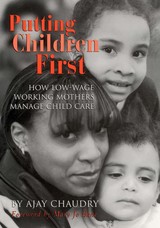
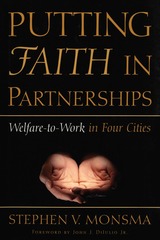
In this groundbreaking study of a politically controversial topic---the debut offering in Alan Wolfe's Contemporary Political and Social Issues series---author Stephen Monsma avoids overheated rhetoric in favor of a careful, critical analysis of the hard evidence on whether public-private partnerships really work.
The book is based on in-depth studies of social service programs in Los Angeles, Chicago, Philadelphia, and Dallas. By examining public-private partnerships between government offices and nonprofit organizations, Monsma seeks to understand how these partnerships affect the balance between government's efforts to deal with social problems and the rights of individual citizens to control their own lives.
Putting Faith in Partnerships answers many previously unanswered questions in what may be the most controversial public policy debate today: about the feasibility and wisdom of government agencies forming partnerships with private organizations to provide essential public social services.
Stephen V. Monsma is Professor of Political Science at Pepperdine University. He has served as director of the Office of Quality Review in Michigan's Department of Social Services and is a widely recognized expert on the role of faith-based organizations in social service programs.
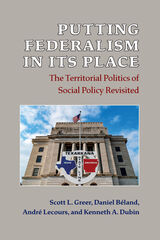
What does federalism do to welfare states? This question arises in scholarly debates about policy design as well as in discussions about the right political institutions for a country. It has frustrated many, with federalism seeming to matter in all sorts of combinations with all sorts of issues, from nationalism to racism to intergovernmental competition. The diffuse federalism literature has not come to compelling answers for very basic questions.
Scott L. Greer, Daniel Béland, André Lecours, and Kenneth A. Dubin argue for a new approach—one methodologically focused on configurations of variables within cases rather than a fruitless attempt to isolate “the” effect of federalism; and one that is substantively engaged with identifying key elements in configurations as well as with when and how their interactions matter. Born out of their work on a multi-year, eleven-country project (published as Federalism and Social Policy: Patterns of Redistribution in Eleven Countries, University of Michigan Press, 2019), this book comprises a methodological and substantive agenda. Methodologically, the authors shift to studies that embraced and understood the complexity within which federal political institutions operate. Substantively, they make an argument for the importance of plurinationalism, changing economic interests, and institutional legacies.
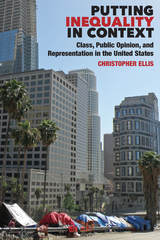
Christopher Ellis argues citizens’—and legislators’—views of class politics are driven by lived experience in particular communities. While some experience is formally political, on an informal basis citizens learn a great deal about their position in the broader socioeconomic spectrum and the social norms governing how class intersects with day-to-day life. These factors are important for policymakers, since most legislators do not represent “the public” at large, but specific constituencies.
Focusing on U.S. congressional districts as the contextual unit of interest, Ellis argues individuals’ political behavior cannot be separated from their environment, and shows how income’s role in political processes is affected by the contexts in which citizens and legislators interact. Political inequality exists in the aggregate, but it does not exist everywhere. It is, rather, a function of specific arrangements that depress the political influence of the poor. Identifying and understanding these factors is a crucial step in thinking about what reforms might be especially helpful in enhancing equality of political voice.
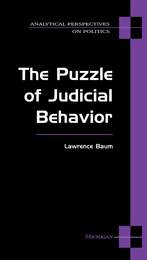
READERS
Browse our collection.
PUBLISHERS
See BiblioVault's publisher services.
STUDENT SERVICES
Files for college accessibility offices.
UChicago Accessibility Resources
home | accessibility | search | about | contact us
BiblioVault ® 2001 - 2024
The University of Chicago Press









